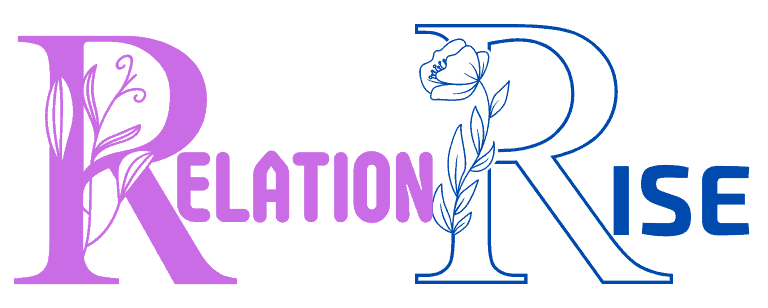What Does It Mean to Modify Parent Child Relationship
Modifying a parent-child relationship means making changes to the dynamics and interactions between a parent and their child. This may involve adjusting communication, setting boundaries, or addressing behavior patterns.
As families evolve and grow, it is natural for the parent-child relationship to go through modifications. These changes can be intentional, such as implementing new rules or responsibilities, or may spontaneously occur as the child matures. Understanding how to navigate and adapt to these adjustments is crucial in fostering healthy and supportive family dynamics.
By acknowledging and actively participating in modifying the parent-child relationship, individuals can cultivate stronger connections and promote positive development for both parent and child.
Defining Parent-child Relationship Dynamics
When it comes to understanding the dynamics of parent-child relationships, it is crucial to define the nature of interaction and the influence of parental authority. These elements significantly impact the development and modification of the parent-child relationship. By exploring these factors, we can better comprehend the complexities of this essential bond.
Nature Of Parent-child Interaction
The nature of parent-child interaction encompasses the various ways in which parents and children communicate, connect, and engage with one another. It involves not only verbal communication but also non-verbal cues, body language, and emotional expressions. The quality of interaction plays a fundamental role in shaping the bond between parents and children. It can range from nurturing, supportive, and affectionate interactions to more challenging and conflict-ridden exchanges. Understanding the nature of these interactions is invaluable in modifying and improving the overall parent-child relationship.
Influence Of Parental Authority
Parental authority holds immense sway over the dynamics of parent-child relationships. It encompasses the parental rules, expectations, discipline, and decision-making processes within the family. The degree of parental authority greatly impacts the child’s sense of security, autonomy, and compliance. As parents exercise their authority, it can either strengthen or strain the bond with their children. By acknowledging and addressing the influence of parental authority, modifications in the relationship dynamics can be effectively implemented.
Impact Of Modifying Parent-child Relationship
Modifying the parent-child relationship can have significant effects on both the psychological and emotional well-being of the child, as well as their behavior.
Psychological And Emotional Effects
Modifying the parent-child relationship can profoundly impact a child’s psychological and emotional well-being. The sense of security and stability that a child derives from the parent-child relationship can be disrupted, leading to feelings of anxiety, confusion, and emotional distress. Children may experience feelings of abandonment or neglect, which can result in long-term emotional trauma.
Behavioral Changes In Children
Changes in the parent-child relationship can trigger various behavioral adjustments in children. They may exhibit signs of aggression, withdrawal, or rebellion as a response to the changed dynamics within the family. Academic performance may also suffer, as the child struggles to cope with the turbulence in their home environment.
Approaches To Modify Parent-child Relationship
When it comes to modifying the parent-child relationship, there are various approaches that can be employed to nurture a healthier and more harmonious dynamic. These approaches are vital in fostering positive connections and enhancing communication between parents and their children. Here, we will explore some effective strategies to modify the parent-child relationship, enabling a more supportive and enriching familial environment.
Positive Reinforcement Techniques
Positive reinforcement techniques play a pivotal role in modifying the parent-child relationship. By acknowledging and rewarding desirable behaviors, parents can reinforce positive conduct in their children. This can be achieved through verbal praise, rewards systems, and expressions of appreciation for good behavior. Encouraging and celebrating accomplishments, no matter how small, can contribute to building a strong, healthy bond between parents and their children.
Effective Communication Strategies
In order to modify the parent-child relationship, effective communication is essential. Active listening, open dialogue, and empathy are crucial components of successful communication strategies. It is important for parents to create a safe and non-judgmental environment where children feel comfortable expressing their thoughts and emotions. By fostering open communication, parents can better understand their children’s perspectives and concerns, thus strengthening the parent-child relationship.
Setting Boundaries And Expectations
Establishing clear boundaries and setting reasonable expectations is essential for modifying the parent-child relationship. Clear and consistent rules, along with mutual respect, can create a secure and stable family dynamic. Parents should communicate these boundaries and expectations effectively, ensuring that children understand the reasons behind them. This can lead to a healthier and more respectful relationship, grounded in trust and understanding.
Importance Of Maintaining Healthy Parent-child Dynamics
When it comes to parent-child relationships, maintaining a healthy dynamic is essential for the well-being of both the parent and the child. The quality of the parent-child relationship sets the stage for an individual’s psychological development and long-term relationship well-being, making it crucial for both parties to understand the significance of maintaining a positive and nurturing dynamic.
H3 headingsLong-term Relationship Wellbeing
The long-term implications of the parent-child relationship are profound. A healthy parent-child dynamic can foster trust, openness, and support, laying the foundation for positive relationships throughout the child’s life. On the other hand, a strained or negative relationship may lead to disconnect and difficulties in forming and maintaining healthy relationships in the future.
Psychological Development Of Children
Children’s psychological development is significantly influenced by their relationship with their parents. A strong bond with responsive and supportive parents can contribute to the child’s emotional regulation, resilience, and overall well-being. On the contrary, an unstable or unhealthy parent-child dynamic can lead to anxiety, attachment issues, and other psychological challenges for the child.
Challenges In Modifying Parent-child Relationship
The parent-child relationship is a crucial aspect of family dynamics, and modifying this relationship can present several challenges. When attempting to make changes, both parties may encounter resistance and face traditional mindsets that hinder progress. Understanding and overcoming these challenges is essential for fostering positive changes within the family unit.
Resistance From Either Party
When parents or children resist changes to the existing parent-child relationship, it can create significant roadblocks. Parents may hesitate to relinquish control or adapt to the changing needs and perspectives of their children. On the other hand, children might be resistant to altering their dynamic with their parents due to fear of the unknown or a sense of loyalty to the status quo.
Overcoming Traditional Mindsets
Families rooted in traditional values and customs may find it challenging to modify the parent-child relationship. The deeply ingrained beliefs and behavioral patterns within the family can impede efforts to effect change. Overcoming traditional mindsets requires open and honest communication, empathy, and a willingness to challenge long-standing norms for the betterment of the family bond.
Frequently Asked Questions Of What Does It Mean To Modify Parent Child Relationship
What Is The Importance Of Modifying Parent-child Relationship?
Modifying the parent-child relationship is crucial for establishing communication and building a strong connection between the two.
How Can Modifying The Parent-child Relationship Benefit Families?
It can lead to better understanding, trust, and a harmonious environment within the family, promoting positive growth and well-being.
What Are Some Effective Ways To Modify The Parent-child Relationship?
Open communication, active listening, setting boundaries, providing support, and mutual respect are key strategies for modifying the parent-child relationship.
What Challenges Might Arise When Modifying The Parent-child Relationship?
Resistance to change, miscommunication, and generational gaps can create hurdles when attempting to modify the parent-child relationship.
What Resources Are Available For Parents Seeking To Modify Their Relationship With Their Children?
Parenting workshops, counseling services, online resources, and support groups offer valuable guidance and tools for parents aiming to enhance their relationship with their children.
Conclusion
In essence, modifying the parent-child relationship means adjusting to the changing dynamics between parents and their children. By understanding and adapting to the evolving needs and expectations of each other, both parents and children can enjoy a healthier and more fulfilling relationship.
It involves open communication, mutual respect, and continuous support, ultimately fostering strong family bonds.





